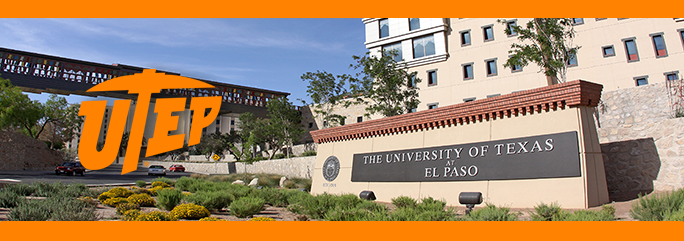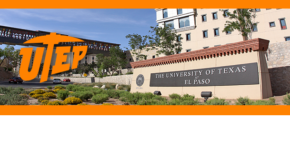
The Academic Minute from 07.29 – 08.02
Monday, July 29th
Carlos Tarin – University of Texas at El Paso
Borderland Ecological Consciousness
Dr. Tarin’s research interests lie at the intersection(s) of organizational communication and the environment. Specifically, he is interested in exploring how organizations employ situated cultural discourses as a means of fostering environmental engagement. Much of his work draws on structuration theory and structurating activity theory as a way of understanding how organizational practices become routinized and codified. His dissertation research focused on Rare, a non-profit environmental organization that sponsors conservation and sustainability projects in developing tropical and sub-tropical nations. He interrogated how the organization uses communication to, first, sustain commitment and identity internally and, second, to instigate change in the complex social, political, and cultural contexts in which the projects are deployed. This line of research has far reaching consequences for how we conceptualize and theorize issues such as organizational identity, organizational transformation, and sustainability.
Tuesday, July 30th
Yolanda Chavez Leyva – University of Texas at El Paso
Uncaged Art Provides a Voice to Detained Migrant Children
Dr. Yolanda Chávez Leyva is a Chicana historian and writer who was born and raised on the border. She is the director of the Institute of Oral History and associate professor at UTEP. She has spent her life listening to and now documenting the lives of people who live on la frontera. Dr. Leyva specializes in border history, public history, and Chicana history. She is co-founder of Museo Urbano, a museum of the streets, that highlights fronterizo history by taking it where people are– from museums to the actual streets of El Paso. She came to academia after a decade of social work in the Black and Brown communities of east Austin, with a desire to make academia and especially history relevant and useful to people. Her work has been recognized nationally. She is the recipient of the National Council on Public History “Best Public History Project Award” and the American Historical Association Herbert Feis Award that recognizes “distinguished contributions to public history.” She has curated, and co-curated, many museums exhibits with her students. Dr. Leyva has published numerous articles on Chicana, lesbian and border history. In addition, she has published poetry in Ixhua, La Voz de Esperanza, andCantos al Sexto Sol.
Wednesday, July 31st
Stephen Coulthart – University of Texas at El Paso
The Perils of Border Security Technology Megaprojects
Stephen Coulthart (Ph.D. University of Pittsburgh) is an assistant professor of security studies at The University of Texas at El Paso. His research focuses on intelligence analysis and emerging national security technologies. Dr. Coulthart has published research in journals such as International Affairs and the Journal of Conflict Resolution. He is the lead editor of Researching National Security Intelligence (Georgetown University Press, forthcoming, 2019).
Thursday, August 1st
Josiah Heyman – University of Texas at El Paso
What Do El Paso and Ciuded Juarez Borderlanders Think of Each Other?
Josiah Heyman is professor of anthropology, endowed professor of border trade issues, and director of UTEP’s Center for Interamerican and Border Studies. He has more than 30 years of experience in conducting research about the U.S.-Mexico border. His current work includes applied anthropology on migration and human rights at the U.S.-Mexico border and water sustainability in the binational Paso del Norte region. He is the author of over 120 journal articles and book chapters, and author or editor of five books, and has mentored many graduate and undergraduate students along the way.
Friday, August 2nd
Stacey Sowards – University of Texas at El Paso
Latina/Chicana Social Leaders and Today’s Social Movements
Dr. Sowards (PhD, Kansas University) has been at UTEP for 15 years. Her research interests include the intersections of: rhetorical theory and criticism, feminist theories of communication, environmental communication and rhetoric, and intercultural communication and rhetoric. She is especially interested in these areas of inquiries in Asia and Latin America. She has completed research projects in and about Indonesia, Mexico, and Costa Rica. Her publications appear in Communication Theory, Philosophy and Rhetoric, Communication Studies, The Howard Journal of Communications, Hypatia, Argumentation and Advocacy, Ethics and the Environment, The Globalization of Corporate Media Hegemony, and other outlets. She also received a William J. Fulbright research grant for her dissertation research in 2000-2001 and a Fulbright-Hays grant in 2005.
